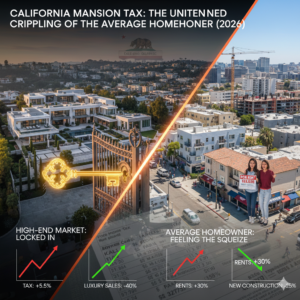Real Estate Tax Free Exchanges
 If you own investment property. There is a very popular alternative to just selling the property and paying the taxes due. This is called a 1031 exchange. The 1031 is referring to the section of the tax code that deals with these types of exchanges. Now, I should say that being a real estate broker, I am not allowed to advise clients on legal or tax matters concerning the sale of any real estate. But, what I am allowed to advise is that if you own investment type property rather than do an outright sale, it would probably be well worth the consultation fee to first talk with your certified public accountant and or legal advisor as to whether or not a 1031 tax-free exchange would it be appropriate in your particular circumstance.
If you own investment property. There is a very popular alternative to just selling the property and paying the taxes due. This is called a 1031 exchange. The 1031 is referring to the section of the tax code that deals with these types of exchanges. Now, I should say that being a real estate broker, I am not allowed to advise clients on legal or tax matters concerning the sale of any real estate. But, what I am allowed to advise is that if you own investment type property rather than do an outright sale, it would probably be well worth the consultation fee to first talk with your certified public accountant and or legal advisor as to whether or not a 1031 tax-free exchange would it be appropriate in your particular circumstance.
In a 1031 tax-free exchange there are strict guidelines that must be met in the structuring of the transaction, both financially as well as timing, in order to avoid invalidating the tax-free benefit of the exchange. But, even meeting these guidelines and having a perfect tax-free exchange may still not be the best way for every investor to proceed. This is another reason that it’s of up-most importance to talk with your CPA or legal advisor prior to even contemplating such a transaction.
For a little background on 1031 tax-free real estate exchanges, I came across this very well structured question and answer right-up. I would suggest that this would make a good information source to familiarize yourself with the process prior to your meeting with your own financial advisor.
Section 1031 Exchange ×€ FAQs
Source:Â Federation of Exchange Accommodators / www.1031.org
Every Section 1031 Exchange transaction is different. These “Frequently Asked Questions” are intended to answer general inquiries. The application of these principles will depend on the specific facts of each transaction. Always consult a competent Qualified Intermediary, attorney, or tax advisor to determine how an exchange may best be structured to accomplish your investment objectives.
Q – What is a tax-deferred exchange?
In a typical transaction, the property owner is taxed on any gain realized from the sale. However, through a Section 1031 Exchange, the tax on the gain is deferred until some future date.
Section 1031 of the Internal Revenue Code provides that no gain or loss shall be recognized on the exchange of property held for productive use in a trade or business, or for investment. A tax-deferred exchange is a method by which a property owner trades one or more relinquished properties for one or more replacement properties of “like-kind”, while deferring the payment of federal income taxes and some state taxes on the transaction.
The theory behind Section 1031 is that when a property owner has reinvested the sale proceeds into another property, the economic gain has not been realized in a way that generates funds to pay any tax. In other words, the taxpayer’s investment is still the same, only the form has changed (e.g. vacant land exchanged for apartment building). Therefore, it would be unfair to force the taxpayer to pay tax on a “paper” gain.
The like-kind exchange under Section 1031 is tax-deferred, not tax-free. When the replacement property is ultimately sold (not as part of another exchange), the original deferred gain, plus any additional gain realized since the purchase of the replacement property, is subject to tax.
Q – What are the benefits of exchanging vs. selling?
- A Section 1031 exchange is one of the few techniques available to postpone or potentially eliminate taxes due on the sale of qualifying properties.
- By deferring the tax, you have more money available to invest in another property. In effect, you receive an interest free loan from the federal government, in the amount you would have paid in taxes.
- Any gain from depreciation recapture is postponed.
- You can acquire and dispose of properties to reallocate your investment portfolio without paying tax on any gain.
Q – What are the different types of exchanges?
- Simultaneous Exchange: The exchange of the relinquished property for the replacement property occurs at the same time.
- Delayed Exchange: This is the most common type of exchange. A Delayed Exchange occurs when there is a time gap between the transfer of the Relinquished Property and the acquisition of the Replacement Property. A Delayed Exchange is subject to strict time limits, which are set forth in the Treasury Regulations.
- Build-to-Suit (Improvement or Construction) Exchange: This technique allows the taxpayer to build on, or make improvements to, the replacement property, using the exchange proceeds.
- Reverse Exchange: A situation where the replacement property is acquired prior to transferring the relinquished property. The IRS has offered a safe harbor for reverse exchanges, as outlined in Rev. Proc. 2000-37, effective September 15, 2000. These transactions are sometimes referred to as “parking arrangements” and may also be structured in ways which are outside the safe harbor.
- Personal Property Exchange: Exchanges are not limited to real property. Personal property can also be exchanged for other personal property of like-kind or like-class.
Q – What are the requirements for a valid exchange?
- Qualifying Property – Certain types of property are specifically excluded from Section 1031 treatment: property held primarily for sale; inventories; stocks, bonds or notes; other securities or evidences of indebtedness; interests in a partnership; certificates of trusts or beneficial interest; and choses in action. In general, if property is not specifically excluded, it can qualify for tax-deferred treatment.
- Proper Purpose – Both the relinquished property and replacement property must be held for productive use in a trade or business or for investment. Property acquired for immediate resale will not qualify. The taxpayer’s personal residence will not qualify.
- Like Kind – Replacement property acquired in an exchange must be “like-kind” to the property being relinquished. All qualifying real property located in the United States is like-kind. Personal property that is relinquished must be either like-kind or like-class to the personal property which is acquired. Property located outside the United States is not like-kind to property located in the United States.
- Exchange Requirement – The relinquished property must be exchanged for other property, rather than sold for cash and using the proceeds to buy the replacement property. Most deferred exchanges are facilitated by Qualified Intermediaries, who assist the taxpayer in meeting the requirements of Section 1031.
Q – What are the general guidelines to follow in order for a taxpayer to defer all the taxable gain?
- The value of the replacement property must be equal to or greater than the value of the relinquished property.
- The equity in the replacement property must be equal to or greater than the equity in the relinquished property.
- The debt on the replacement property must be equal to or greater than the debt on the relinquished property.
- All of the net proceeds from the sale of the relinquished property must be used to acquire the replacement property.
Real Estate Tax Free Exchanges






I got this website from my friend who told me concerning this website and at the moment
this time I am browsing this web site and reading very informative content here. Thanks for the 1031 tax exchange info.
Hello, i feel that i noticed you visited my site
so i got here to return the choose?.I’m trying to to find issues to enhance my site!I assume its adequate to make use of a few of your real estate concepts!!
Hello, Neat post. There is an issue with your site in web explorer,
might check this? IE still is the marketplace leader and a
big portion of other people will pass over your fantastic writing because of this problem.